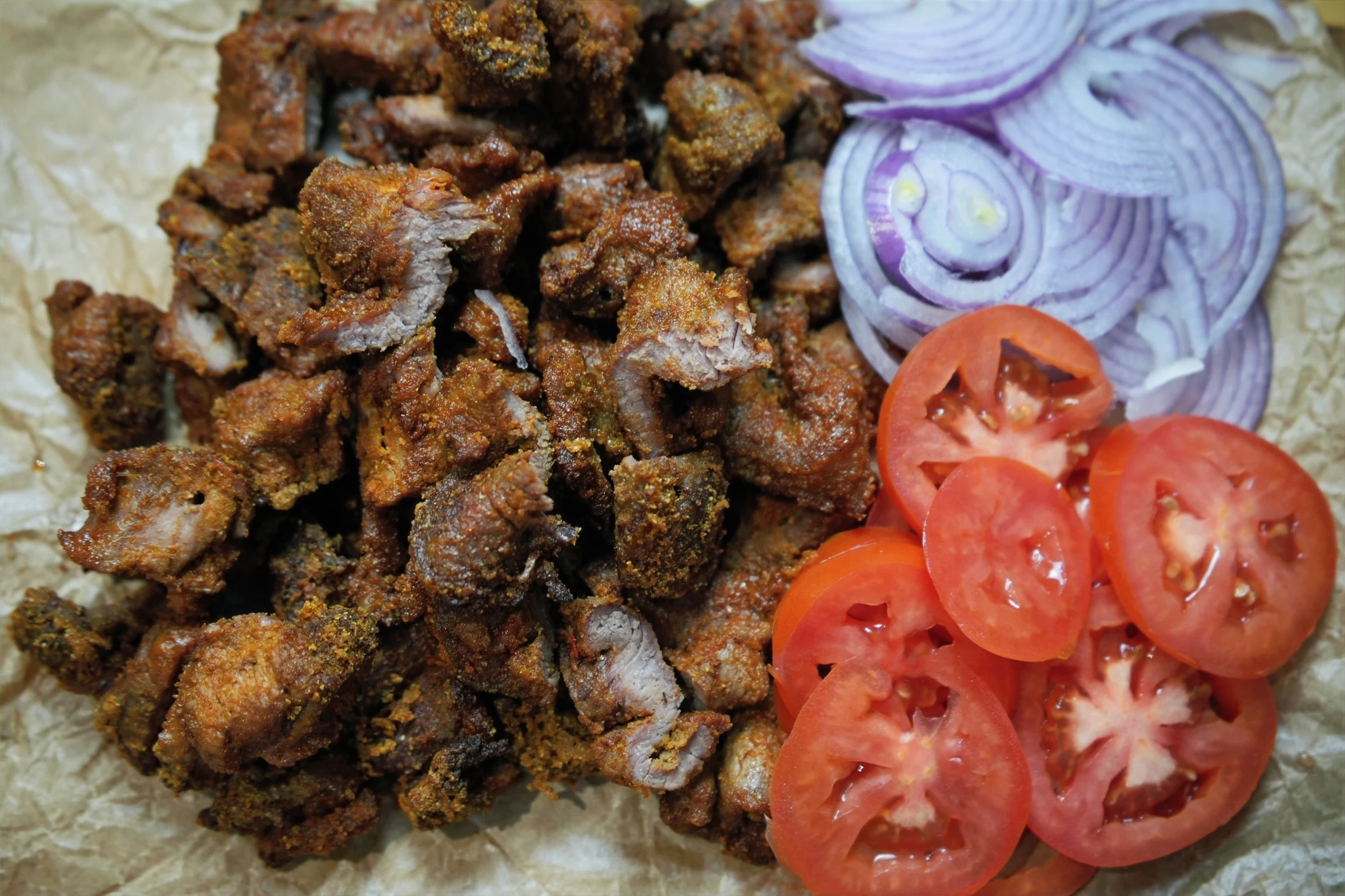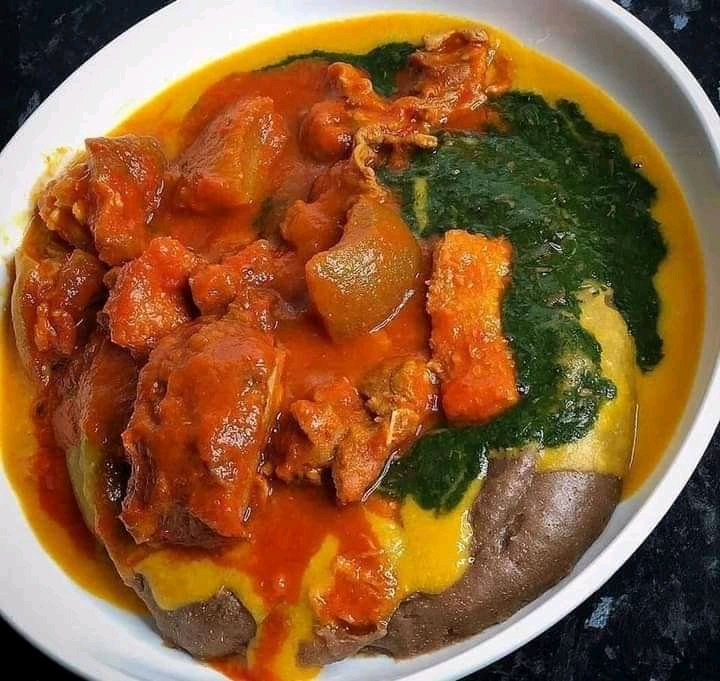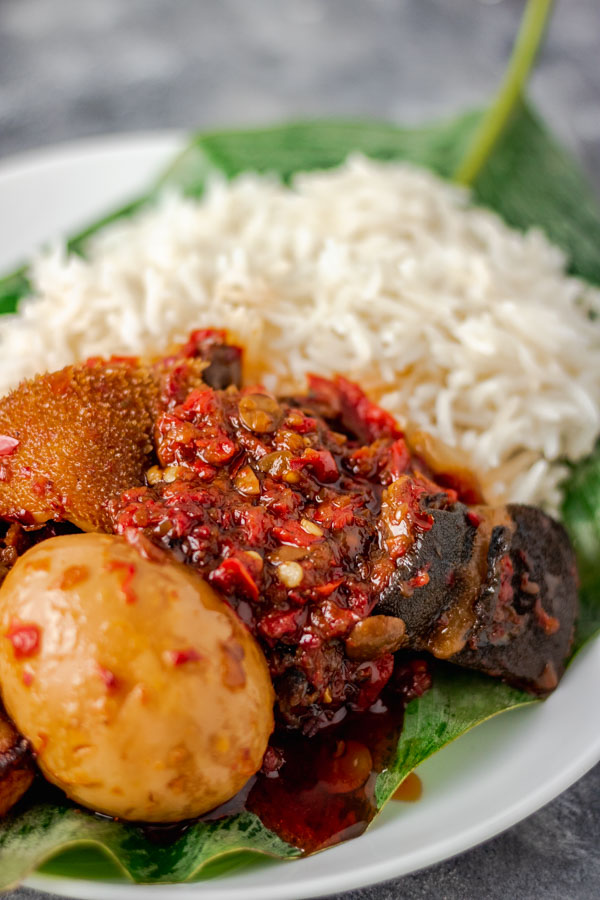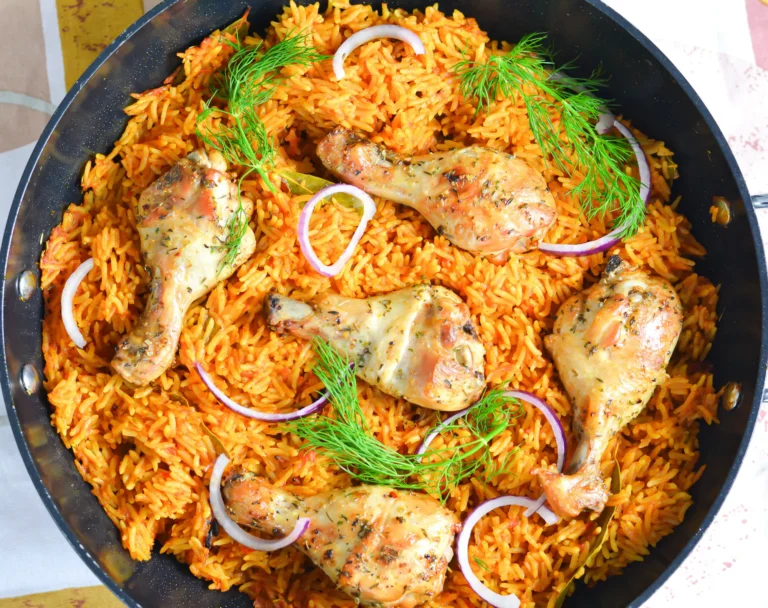Nigeria’s traditional cuisine is a rich tapestry of history and regional flavors. From the spicy Yoruba ofada rice to the hearty Igbo egusi soup, each dish embodies a unique blend of culture and tradition. Northern regions are known for their succulent suya, while coastal areas offer fresh seafood delights. Staples like yam, cassava, and plantains are central to many meals, often accompanied by flavorful stews and sauces.
Nigerian cuisine is more than just food—it’s a celebration of community, with meals often enjoyed together. As Nigeria evolves, its cuisine remains a proud testament to its heritage.
5 Must-Try Traditional Nigerian Foods
1. Egusi Soup and Fufu

Egusi soup, made from ground melon seeds, is a flavorful staple in Nigerian cuisine. It’s typically cooked with palm oil, vegetables, and proteins like beef, chicken, or fish. This hearty soup is traditionally paired with fufu, a starchy side made from boiled and mashed root vegetables such as cassava or plantains. The combination is a classic and satisfying Nigerian meal.
2. Nigerian Jollof Rice

Jollof rice is a celebrated dish throughout West Africa, renowned for its vibrant flavor. The rice is cooked with tomatoes, onions, and peppers, seasoned with spices like thyme, curry powder, and bouillon cubes. Often enjoyed with chicken, fish, or beef, Jollof rice is commonly served with fried plantains or coleslaw, making it a versatile and globally beloved dish.
3. Suya

Suya is a popular Nigerian street food featuring grilled skewers of marinated beef, chicken, or goat. Seasoned with a mix of spices including ginger, garlic, and ground peanuts, suya is grilled over an open flame. It’s usually served with onions, tomatoes, and a spicy suya sauce, making it a flavorful and satisfying snack.
4. Amala and Ewedu

A traditional Yoruba dish, Amala and ewedu combines amala, a swallow made from cassava flour, with ewedu, a green vegetable stew. Ewedu is prepared by blending jute leaves with water, onions, and seasoning, creating a nutritious and flavorful complement to the starchy amala.
5. Ofada Rice and Palm Oil Stew

Ofada rice, known for its distinct nutty flavor and aroma, is often served with a rich palm oil stew. This stew, made with tomatoes, onions, peppers, and spices, offers a slightly sweet and robust flavor that pairs perfectly with the aromatic rice.
Nigeria’s Signature Dish
Jollof Rice is undoubtedly Nigeria’s culinary icon. Its popularity stems from its delicious combination of rice, tomatoes, onions, peppers, and a blend of spices. What makes Jollof Rice stand out is the unique regional and personal twists that each cook brings to the dish. Whether you prefer it spicy, sweet, or somewhere in between, there’s a Jollof Rice recipe to match every taste.
Top 5 Essential Foods in Nigeria
- Fruits and Vegetables: Vital for vitamins, minerals, and fiber, they add variety and nutrition to the diet.
- Starchy Foods: Bread, rice, pasta, and potatoes provide essential carbohydrates and fiber for energy and digestion.
- Dairy Products: Milk, cheese, and yogurt offer calcium, protein, and vitamin D, crucial for strong bones and teeth.
- Protein Foods: Meat, poultry, fish, eggs, beans, and lentils are key for tissue repair and provide essential amino acids.
- Healthy Fats: Found in avocados, nuts, seeds, and olive oil, these fats support energy, hormone production, and cell function.
Nigeria’s traditional foods are a delicious reflection of its rich culture and history, making each meal a celebration of heritage and community.


